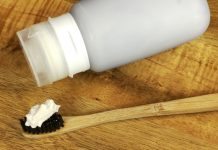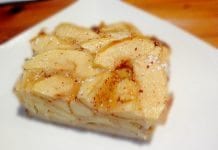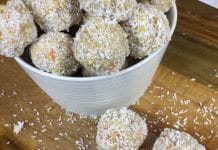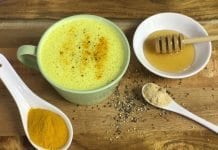Whether you workout in a gym, a dance studio or in the pool the food you eat after any pulse raising training session is an important component for good muscle recovery. Whether it’s a snack or drink it needs to be a good balance of carbs, protein and fats, particularly MCTs (medium chain triglycerides) also known as MCFAs (medium chain fatty acids) to help with muscle recovery as well as development and growth.
Post Exercise Recovery
Post Exercise Recovery simply means how your muscles, energy levels and general wellbeing pull up after a workout or training session. Whether you are an athlete or not any form of exercise or work for that matter where you have raised your heart rate and worked large muscle groups will require you to refuel, recharge and rest. It’s important to pay as much attention to your post exercise recovery as it is to your workout activity or routine. Meeting all your body’s nutritional needs will not only boost your energy but help build muscle and quicken your recovery time between workouts.
How Coconut Oil Benefits Post Exercise Recovery
Coconut oil is a rich source of MCTs and the perfect addition to any post workout recovery meal such as smoothies, protein shakes or bliss balls. MCTs are a high energy fuel that prevents muscle loss while promoting fat loss.
Coconut oil is the Fat Equivalent to Whey Protein
- Whey protein has long been the favourite ingredient for trainers and athletes and anyone in between who wants to get the most from their workout routines.
- Whey is known for it’s ease on the digestion and rapidly absorbed which makes it ideal for both muscle building and muscle recovery.
- Whey is a great source of glucogenic protein that raises both insulin and igf-1 levels which is needed post workout to stop the cortisol rise which creates muscle catabolism.
- Whey is also an immune system enhancer. It’s high levels of amino acid cysteine is a major building block for the body’s most important antioxidant, glutathione.
- In many ways coconut oil is like the fat equivalent to whey protein.
Coconut oil is easy on the digestion
MCTs are rapidly digested and quickly absorbed because it requires less energy and fewer enzymes to break them down. This means it won’t delay the carb intake that’s racing to feed those hungry muscles. Often after a workout your digestion is not in a state to eat a heavy meal. Coconut oil will not only aid your recovery from the workout but also boost your energy levels in the post workout recovery state.
Coconut oil stimulates insulin secretion
Lauric acid, a fatty acid found in large quantities in Coconut oil, is one of the most insulinotropic fatty acids, meaning it aids insulin secretion rather than stopping it. This is important for both muscle recovery and for building muscle. For people who want to follow a LCHF diet or Ketogenic diet and also continue to workout, the good news is that coconut oil doesn’t require a heavy carb load to gain increased insulin spikes. Many low carb trainers utilise the benefit of having coconut oil in their daily diets as well as pre and post workout meals.
Coconut oil boosts the immune system
Many athletes or weight trainers run the risk of overtraining, in fact any one who endeavours on a new exercise program or decides to up their current program can be at risk of overdoing it which can result in lowering your immune system and being vulnerable to viruses and bacterial infections. Often when muscles are overworked and either not given enough nutrition or not allowed enough rest, a low grade viral infection can occur causing muscle weakness, fatigue and poor recovery. Coconut oil provides via the MCTs antibacterial, antiviral, antifungal and antimicrobial functions that will help prevent or ward off many low grade infections occurring. Using coconut oil on a daily basis will boost your energy so that you can workout smarter and not harder.
Coconut oil boosts intramuscular triglycerides
During intense workouts, especially weight training, our muscles are fuelled by glycogen, supplied by carbs and protein, and intramuscular triglycerides (IMTG), supplied by dietary fats. Both glycogen and IMTG is used up during training sessions by our muscles for strength, energy and building. Using coconut oil (MCFAs) as opposed to another dietary fat (LCFAs) means that muscles receive IMTG faster. LCFAs are digested more slowly and absorbed by the lymphatic system and then float freely around the system as fatty acids. MCFAs are digested through the intestines and sent straight to the liver where they are quickly utilised by the muscles as IMTG.
Coconut Oil promotes fat loss
This isn’t about the number on the scales – but about muscle gain and fat loss. Your number on the scale will decrease over time but what you will notice is that your measurements and how your clothes fit will change within a matter of weeks. Coconut oil will not make you fat, on the contrary it will boost your metabolism, help you to burn faster and assist the post workout muscle recovery.
Coconut oil dosage for post exercise recovery
Take 3 tablespoons daily as a maintenance dose for light to moderate exercise with a pre and or post workout dose in addition with every workout.
Take 4-6 tablespoons daily as a maintenance dose for intense workouts with weight training and a pre and or post workout dose in addition with every workout.
How to Help Sore Muscles Post Workout
Post workout massaging with coconut oil will not only feel heavenly it will also benefit your muscle recovery as well. According to a recent study massage helps to switch genes on and off with helps with reducing inflammation but also to coax muscle adaptation needed for exercise and growth.
Mix up a quick massage oil with the following ingredients:
- 1/4 cup melted coconut oil
- 1 tablespoon Almond oil
- 2-3 drops lavender oil
- 2-3 drops peppermint oil
- Mix together in a bowl and apply as needed.
Post Workout Smoothie
Try this delicious and nutritious low carb high protein Strawberry Smoothie recipe.
Have you used coconut oil as a workout recovery supplement?
Need some suggestions for post workout foods? Check out this list.



























